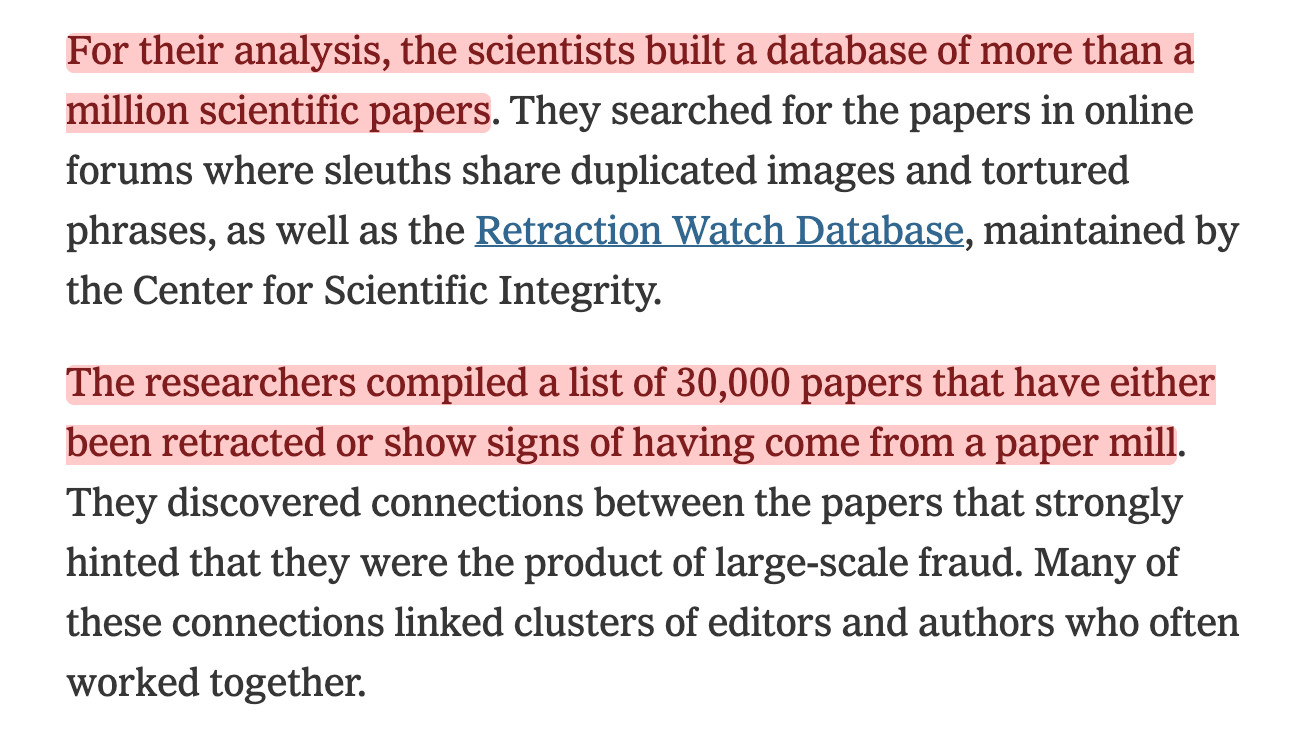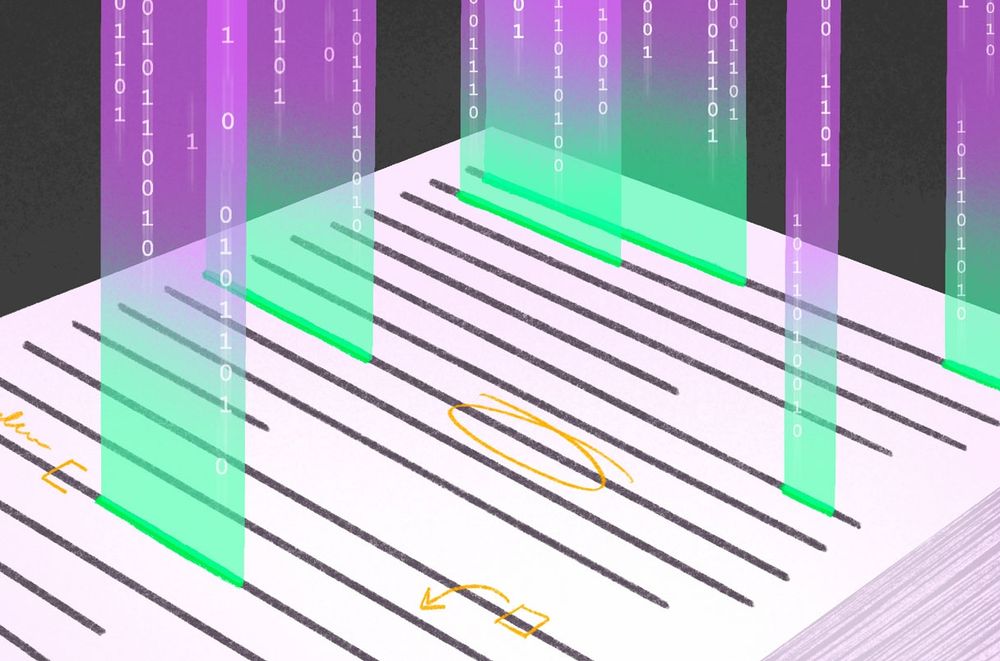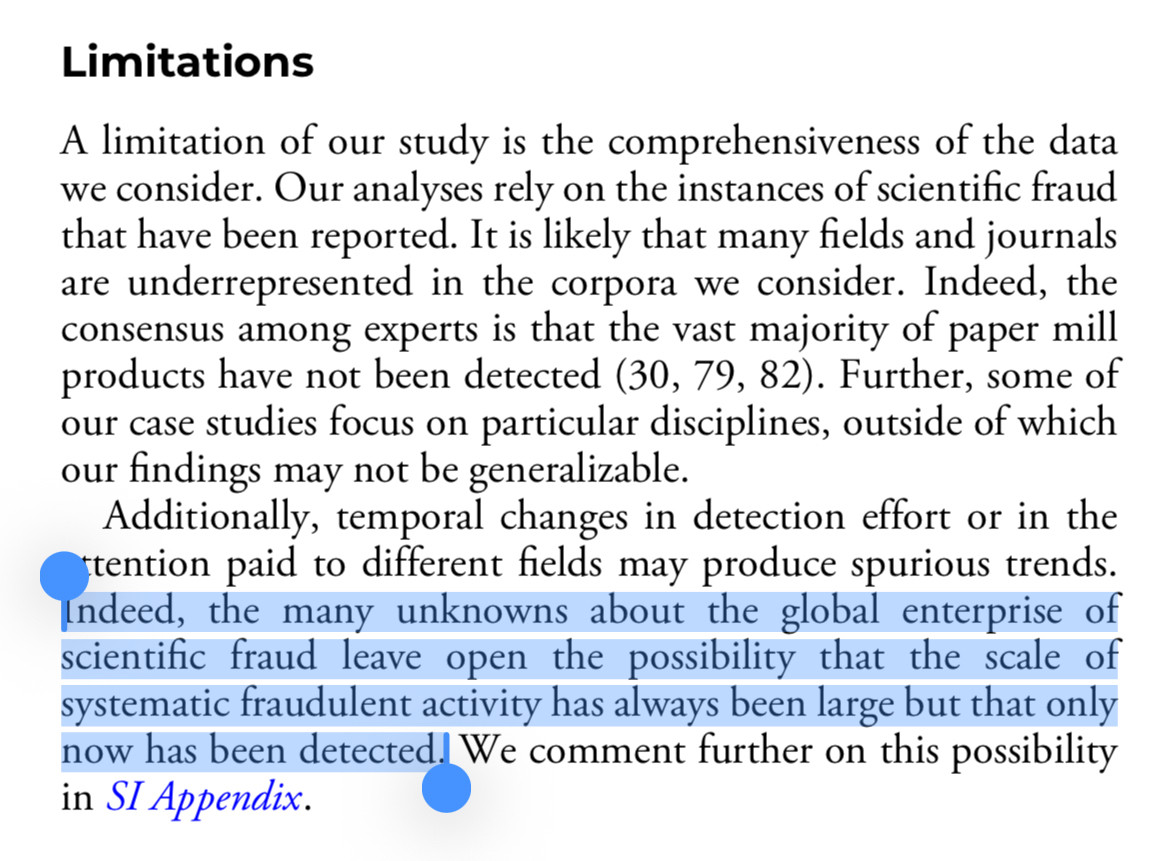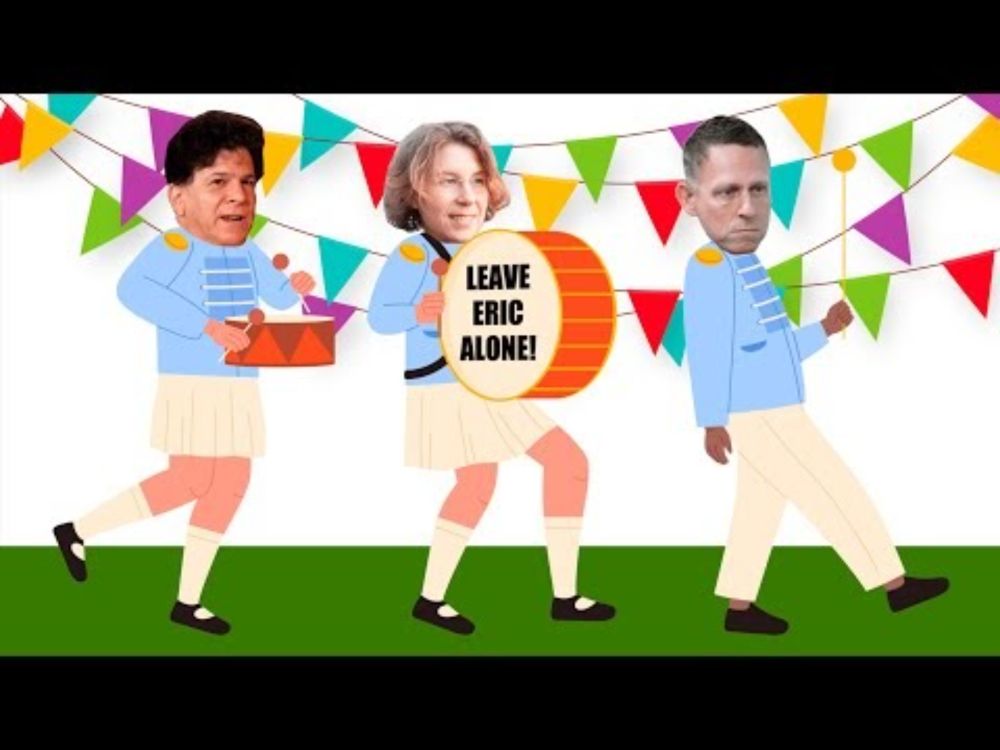Also, 30,000 fake papers out of 1 million+ does not indict or threaten science as a whole. This entire "science is in crisis from within" narrative is a right-wing myth.

I think this quote is both unsustainable and unsupported by the analysis in the piece. First and foremost, it portrays fraud as consuming science rather than merely growing alongside it. Much of the “fraud” in the paper is just metric gaming whackamole that doesn’t get read, cited or used.



